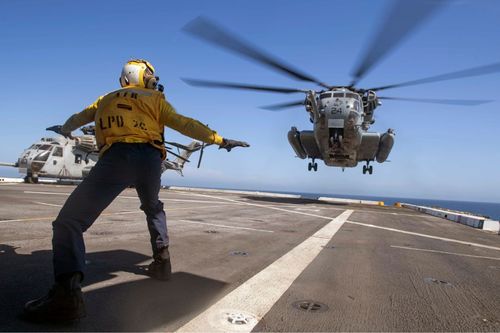
Recruits trained by Digital Tutor reached an expert level of expertise and solved double the number of problems as teams with five years of experience.
The Defense Advanced Research Projects Agency (DARPA) has taught naval recruits expert-level IT skills in just 16 weeks using an AI training system.
Recruits using the Digital Tutor for Naval IT Training system, or just Digital Tutor, vastly outscored those that were traditionally trained.
The AI system's performance was assessed by comparing Digital Tutor teams against two controls. One was ‘Fleet Teams’ whose members had five years of experience. The other underwent longer standard classroom training known as ITTC.
The results saw Digital Tutor teams attempting 140 problems, successfully solving 104 of them with an average score of 3.78.
Fleet teams successfully solved 52 out of 100 problems with an average score of 2.00. And ITTC teams attempted 87 problems and successfully solved just 33, with an average score of 1.41.
The Digital Tutor itself delivered the core teaching, while human mentors served a supervisory role. It presents explanatory material, then presents problems to solve based on the material provided. This process allows the system to understand the user based on their answers and adapts to ensure it has understood the concepts shown.
According to Matthew Phillips, co-founder of the Delta Academy, which hosts AI-building competitions, Digital Tutor required extensive expert knowledge to make it work.
Existing courses and education material, supplemented by expert IT technicians giving input through interviews, were used to develop the system, he outlined in a blog post.
Not much detail is available on how the backend of the system works, however, Phillips stated that the system required constant human supervision
“There was always a supervisor present. They were embedded in an in-person, intensive program. But this was also true for the control group, who underwent standard teaching.
“The end result was the Digital Tutor providing ‘guided, authentic, and practical problem-solving experience with Navy IT systems, workstations, networks, and administrative policies.’ The basic operation iterates between showing conceptual material and testing via problems. By tuning the material shown to each student, massive improvements in performance after training are possible.”
The U.S. Department of Defense is intent on spending some $1.5 billion on AI technologies over the next five years to improve and advance the country’s military. AI-based tutors could be helpful given the shortage of digital skills in the workforce.
“The Digital Tutor established the same kind of concentration, involvement and flow that is characteristic of interactive computer game playing,” a report from the Institute for Defense Analyses said. “The knowledge scores speak to the promise of digital tutoring for education.”
About the Author(s)
You May Also Like


.jpg?width=700&auto=webp&quality=80&disable=upscale)
.jpg?width=700&auto=webp&quality=80&disable=upscale)
.jpg?width=700&auto=webp&quality=80&disable=upscale)



.jpg?width=300&auto=webp&quality=80&disable=upscale)
